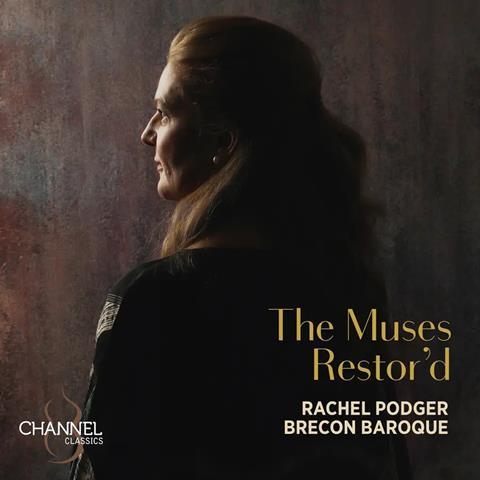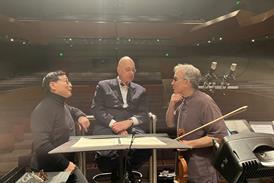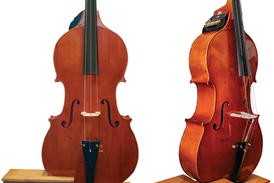A thought-provoking programme from a period-instrument Pied Piper

The Strad Issue: August 2024
Description: A thought-provoking programme from a period-instrument Pied Piper
Musicians: Rachel Podger (violin) Brecon Baroque
Works: Works by Barsanti, Baltzar, Blow, Geminiani, Handel, Jenkins, Jones, Lawes, Locke, Oswald, Purcell and Schop
Catalogue number: CHANNEL CLASSICS CCS46324
The Muses Restor’d
The laudable attributes of Rachel Podger’s playing – technical assurance, musical perception, apt style, expressive subtlety, temporal suppleness and communicative powers, to name a few – have regularly been rehearsed in these columns. They are present in abundance in this imaginative, superbly recorded programme of violin-led ‘British’ chamber music of the Jacobean and early Georgian eras.
Podger is the principal protagonist in Handel’s D major Sonata HWV371 – her expressive, embellished accounts of its two slow movements are especially notable – but her colleagues contribute significantly to the contrapuntal Allegro and sprightly finale. Further dialogue ensues in William Lawes’s harmonically colourful, hybrid Eighth Fantasia-Suite – in which Podger, organist Marcin Świątkiewicz and gambist Reiko Ichise in particular interweave empathetically – John Jenkins’s Fantasia-Suite in A minor, Locke’s affective C major/minor Little Consort and Thurston Dart’s restoration of Purcell’s G minor Sonata Z780.
Watch: Violinist Rachel Podger and Brecon Baroque perform John Jenkins’s Fantasia Suite
The Strad Podcast #95: Historical instrument chat with violinist Rachel Podger
The spotlight returns to Podger for Johan Schop’s melancholy take on Dowland’s Lachrimae, Blow’s sorrowful G minor Ground, a solo Prelude by Baltzar and a group of arrangements of British tunes by Barsanti, Purcell, Oswald and Geminiani, dispatched in a quasi-folk idiom. Richard Jones’s challenging, piquant Chamber Air op.2 no.4 provides the dénouement, its Prelude commendably free and its concluding two movements played with striking attack, energy and imagination, sliding shifts et al.
ROBIN STOWELL









































No comments yet